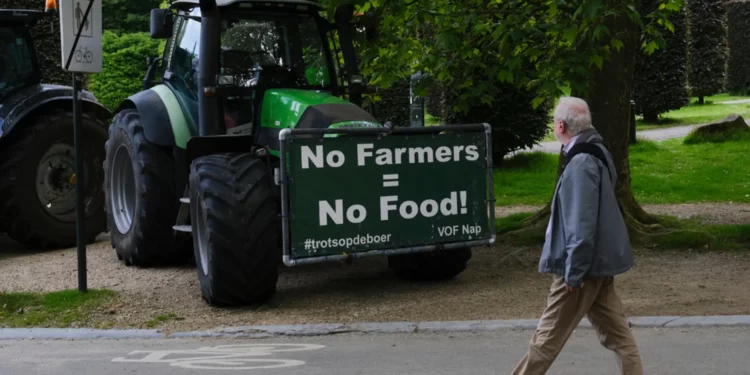The government revises the inheritance tax regulations for farmers above 80 to transfer their land without paying the tax.
After a bitter dispute with the farmers and a huge protest in Westminster, the government changes the inheritance tax regulations for farmers to make it simple for individuals above 80 to pass down their farmland without having to pay the tax.
The Treasury is assessing the effect of changes, including modifying the gifting regulation where over 80 individuals can pass on their farm to their family without having to live for 7 years after giving the gift.
Officials are also evaluating how the October budget revisions will affect small and medium-sized farms compared to smallholdings.
Labour government has come under attack after Rachel Reeves announced in the budget that farmers with businesses worth over £1 million are liable to pay 20% inheritance tax (IHT). The Labour government promised not to alter the agricultural property relief (APR) system, which exempts farmers from the inheritance tax.
The farmers suggested that older farmers be exempted from gifting regulation. Before, under the plans announced last month, if they died less than seven years after giving family farm would have to pay the tax that farmers say would destroy their businesses.
Labour tried to blame the policy on wealthy investors who had a reason for the increase in land prices and were buying land to avoid inheritance tax. However, many farmers complain that they are asset-rich but cash-poor since they earn a very low income due to inflation, poor harvests, and heavy competition among retailers, and the farmers earn only minimum wages.
In addition, many farmers have pointed out that they did not contribute to private pensions as they plan to live in a farmhouse and take income from the farm, which farmers cannot do if they gift it to their kids.
Treasury says that it is difficult to see the impact of the gifting regulations on people over 80 as the farming population data has typically grouped all people above 65 as one category.
According to National Farmers’ Union President Tom Bradshaw, this adjustment is not feasible as the average age of death in the UK is 80. So, the age bar must be decreased to 73 to apply the seven-year gifting rule.
He further argued that if they consider developing senior individuals in the industry, they should give them seven years before the average age of death because there are many better solutions. The policy needs to address the issue and benefit the industry.
Farmers also argued that nonfarmers are getting preferential treatment. Individuals with country homes and paddocks claim APR as their asset is worth less than £1 million, but middle-sized farms are subject to the new tax.
The impact on small and medium-sized farms is different from small holdings. Under the current regime, individuals who buy rural homes and engage in farming as a hobby are exempt from IHT on their estates, but many productive small and medium-sized farms are subject to tax. Plus, farming on small plots of land is also unprofitable and requires costly machines to operate.
The standard rate for IHT is 40%. Labour has stated that farms worth £3 million can exempted since married couples can claim £1 million each tax-free and family homes worth up to £1 million.
Martin Williams, an arable farmer from Herefordshire, is grateful that the Treasury is investigating and wants to know the government goals for this tax other than the necessity of public service investment and requests continued conversation with the farmers.
Steve Reed, the environment secretary, stated the government will address the issue of the farmers at the Country, Land, and Business Association meeting.
A Treasury spokesperson states they are committed to fully adopting the policy and not considering the mitigations.


















